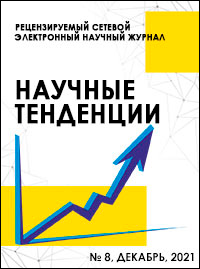PROBLEM OF TRANSLATION OF DIMINUTIVES AS EXPLICATORS OF IRONY (BY EXAMPLE OF N. V. GOGOL’S WORKS AND THEIR GERMAN TRANSLATION)
Keywords:
diminutive; irony; literary text; translation; equivalenceAbstract
The article deals with the features of translation of diminutives as explicators of irony from Russian into German. The research material was the original N. V. Gogol’s works and the texts of their German translation. During the research it was found that lexemes with diminutive suffixes in N. V. Gogol’s works are used to realize irony in the conditions of their deliberate enumeration by the author or excessive use within the same context. It was determined that in the process of translation of diminutives from the original Gogol’s works into German an equivalent translation by means of corresponding lexemes with diminutive suffixes of the translated language is not always used, which, accordingly, causes incomplete transmission or loss of the ironic meaning of the original text in the translation text. On the one hand, this is due to the differences in the systems of the Russian and German languages, on the other hand, to the translation method chosen.
Downloads
Published
Issue
Section
License
Copyright (c) 2023 Электронный научный журнал "Научные тенденции"
Это произведение доступно по лицензии Creative Commons «Attribution-NonCommercial» («Атрибуция — Некоммерческое использование») 4.0 Всемирная.
Авторы сохраняют за собой право заключать определенные договорные соглашения, касающиеся неисключительного распространения опубликованной версии работы (например, размещать ее в институциональном репозитории, публикация в книге) со ссылкой на ее первоначальную публикацию в этом журнале.





